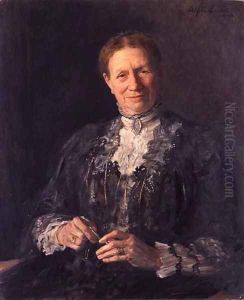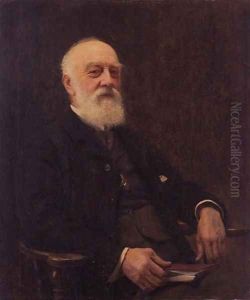Alford Usher Soord Paintings
Alfred Usher Soord was a British artist, born in 1868, who gained some renown for his landscape paintings and religious-themed works. Not as widely known as some of his contemporaries, Soord's work nonetheless reflects the artistic trends and cultural preoccupations of the late 19th and early 20th centuries in Britain.
While there is limited biographical information available about Soord, it is known that he worked during a period of great change in the art world, with movements such as Impressionism, Post-Impressionism, and the beginnings of Modernism emerging around him. Despite these developments, Soord's style remained relatively traditional, focusing on detailed and realistic depictions.
Some of Soord’s well-known works include 'The Lost Sheep', which exemplifies his religious works and represents the parable of the lost sheep from the Bible. This painting was exhibited at the Royal Academy in London, which indicates that Soord was an artist of some standing. The piece's emotional depth and technical proficiency suggest that he had a strong command of the academic painting style of his time.
Despite his clear talents, Alfred Usher Soord's work did not achieve lasting fame, and he is not commonly mentioned among the pantheon of great British artists. His death in 1915, amidst the upheaval of World War I, may have contributed to his relative obscurity in subsequent years. Nevertheless, his contributions to British art during his lifetime add to the rich tapestry of the country's artistic heritage.

